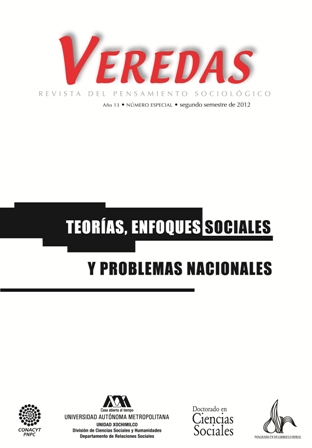Estado, eticidad y forma imperio. Las razones de la pervivencia de la autocracia mexicana
Abstract
Our research critiques those interpretations asserting that the difficulty in consolidating a democratic regime in Mexico is the result of the permanence of a pre-modern and authoritarian political culture. Against the grain of this perspective, we show that this phenomenon is explained by the place and function that certain subordinate States have in the geopolitical process of the reproduction of capital. In order to do so, a reconsideration of the Hegelian concept of ethical substance, or Sittlichkeit, is necessary, since this can be a starting point in explaining the structural differences between Anglo-Saxon and Spanish American political forms, allowing us to understand the impossibility of developing a liberal democracy analogous to that of the United States in Mexico.





